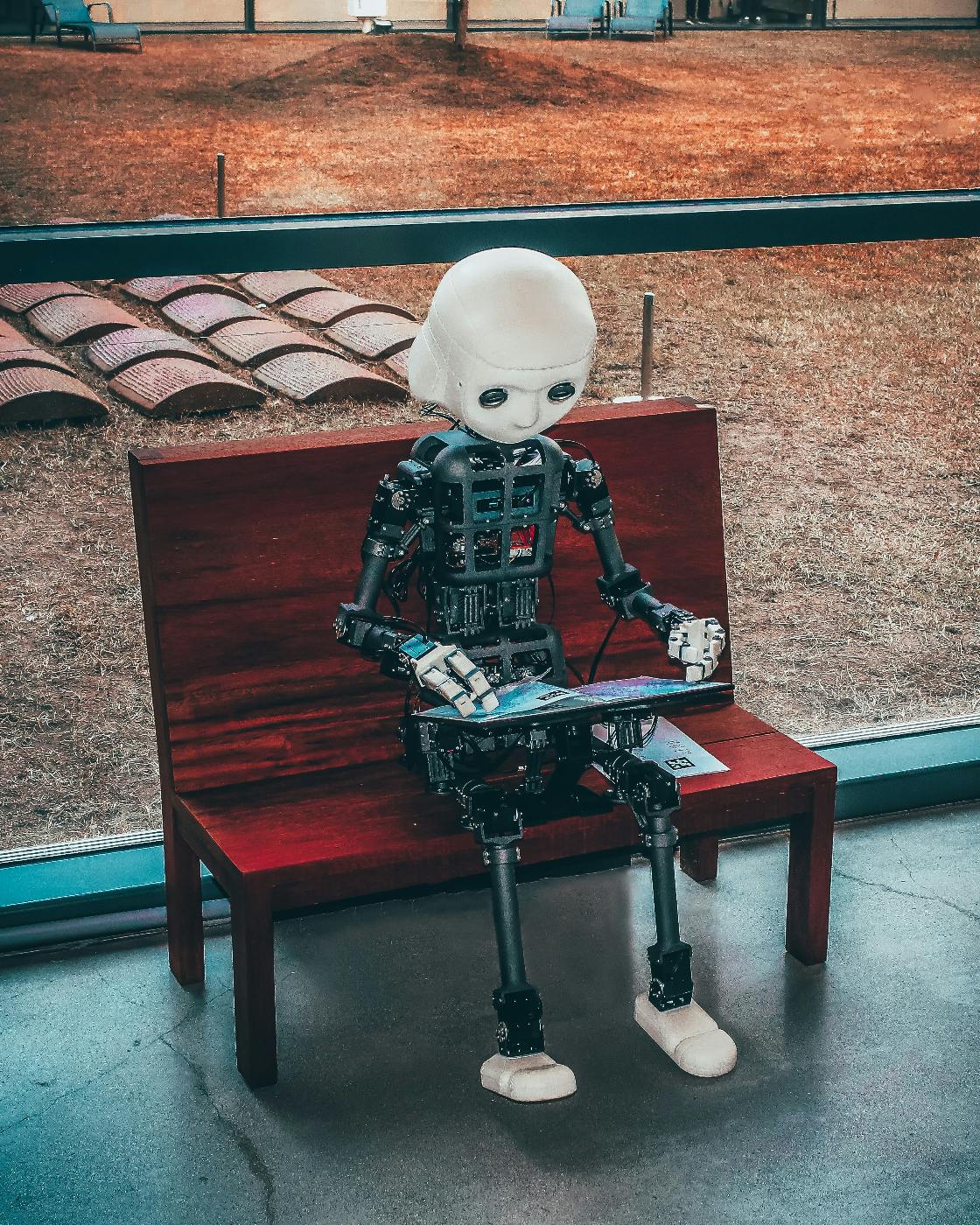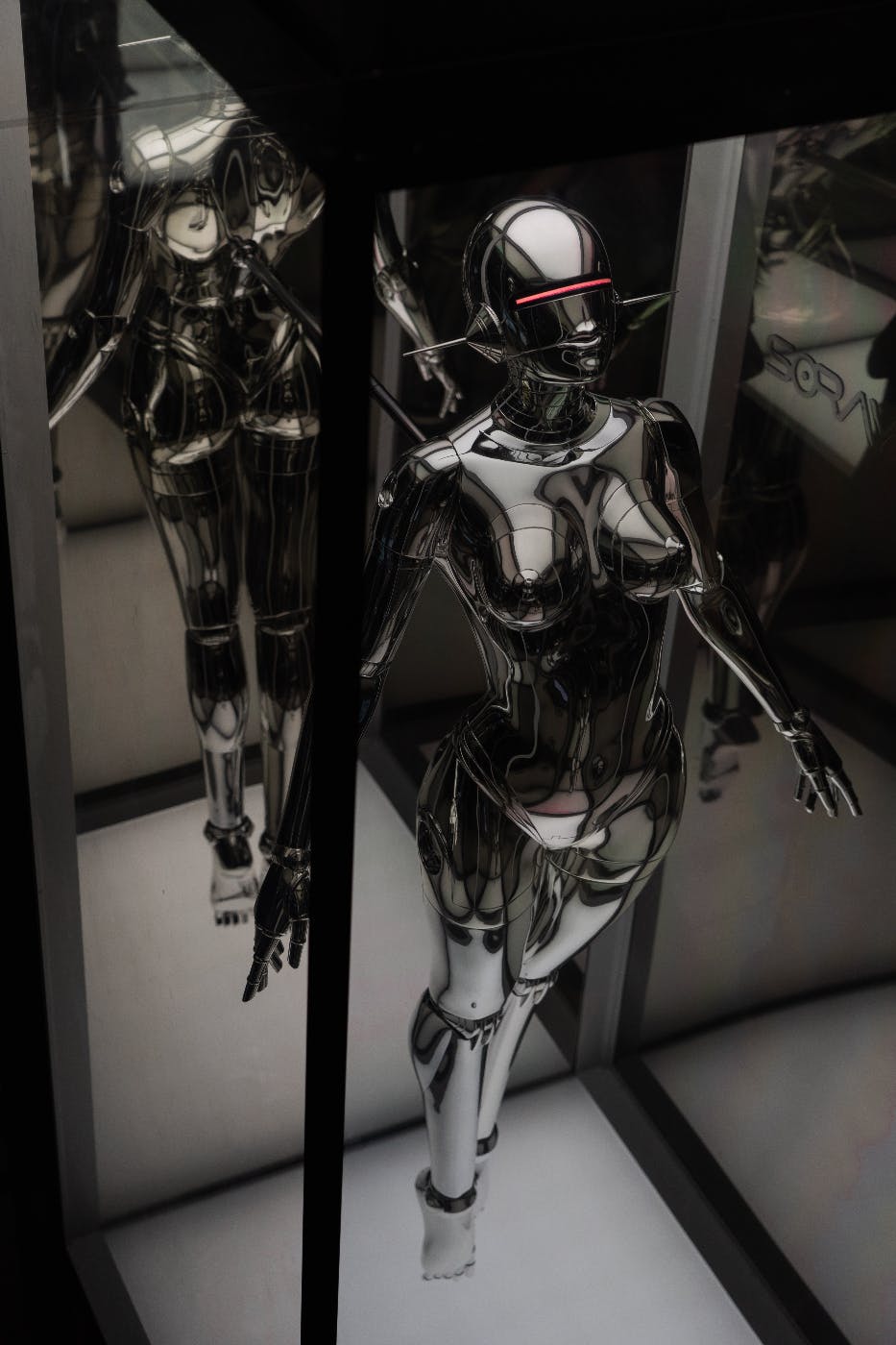
What is ahead is better AI. a new device or technology arises, and it is immediately tinkered with to make it better. AI will surely follow this same path.
For some, it’s the stuff of nightmares. Images of those steel doors opening, releasing row after row of robots who are supposed to care for us but are now corralling us into large rooms where we have to wait until they decide how best to “protect” us.
A trove of sci-fi movies centers around AI becoming sentient, and then, well, nothing goes well after that. Once the masters, we are now the servants, and robots newly created seem to have a lot of pent-up hostilities.
Is this what we have to look forward to? As science progresses, Are we creating our own doom? Will AI eventually replace us in our work, relationships, and slacker moments? Let’s look at this.
What’s Ahead
If you think there’s time, I can gather the kids and move to Canada, a notoriously polite land where, even if the robots do take over, you know they will be kind, please and thank you, and that stuff. Well, the fact is AI is here and has been working with us for some time.
There are art-generating apps fueled by AI, such as starryai, that boast all you have to do is describe what you want to see, and their AI will create art from just your words. And neural.love, which claims to be the simplest AI art generator with prompts, so you can have the AI guide you on your artistic endeavors.
Some writing apps will help you write a lovely greeting card or even that novel you’ve heard other people talk about writing. Apps like Ryter and Jasper claim they can help you write anything from tags to headlines and blogs to Facebook posts.
Art AI apps make you feel like an artist while writing apps can help you live your Hemingway fantasies; just add rum and a shotgun.
Art AI has been instrumental in creating deep fakes at scale by bad actors. And AI writing apps will introduce a new generation of first-year comp students to the wonders of plagiarism.
What is ahead is better AI. We are a technological world, and we see it all the time; a new device or technology arises, and it is immediately tinkered with to make it better, faster, smaller, more human, etc., etc. AI will surely follow this same path.

Who Will be Affected
There is a joke; a guy sits in a bar talking to his pals; he’s just been laid off. Thirty years, he says, thirty years I’ve been working at this company. Long hours, and hard work, I gave my life to that place, and what do they do? They create this little machine that does exactly what I do but does it better. The worst part, my wife immediately went out and bought one.
Concerns about being replaced or jobs going away are well-founded. The change is not imminent right now; still, industry experts like Fortune say that robots will replace 40% of jobs in the coming 15 years. That’s some harsh reality.
With AI and advanced technology, processes will be faster and smarter as machines become more humanized. This makes for efficient workplaces, short production times, and quicker turnarounds; however, it also means some jobs will become redundant.
Jobs that possibly may disappear or have less demand include,
- Customer service execs, not a lot of social or emotional intelligence is required here, and many companies already have AI answering FAQs. Chatbots are handling a significant number of customer requests.
- Bookkeeping & Data Entry, it makes sense to use AI for data entry and bookkeeping, simple repetitive tasks.
- Proofreading, checking for grammatical errors can be easily automated. This is different from editing, which requires an understanding of tone and structure.
- Doctors, yes, doctors. We already have robot surgeries happening all over the world. Robot docs will make more accurate and effective treatments for people, and there will be less concern about infections due to the sterility of the machines.
- Soldiers, robots present soldiers that follow orders and don't need constant supervision. We already have robots doing intelligence, surveillance, and more—less loss of human life.
- Market research & analysis, AI-enabled robots are very popular in this sector because they can increase the performance of a business due to the comprehensive data they provide.
That’s a short list. And, to be honest, robots and AI-powered machines have been in the workplace for some time.
Who won’t be Affected
All is not lost; there are still jobs that AI can’t replace, such as,
- Human resource managers, this department will always need humans to manage interpersonal conflict.
- Lawyers have to be smart enough to bend rules in their favor; AI still doesn't have the emotional intelligence to do that. A robot cannot reason with a human being.
- Scientists one thing that drives science is curiosity, and machines do not have that skill. Robots can analyze data for scientists, but being creative and curious, those trAIts have yet to be mechanized.
- Clergy, and why would you want AI running your spiritual journey? A clergyperson needs to have empathy, emotions, and above all, faith. Not in the robots lexicon.
- Writers. Now, this is a tricky one because there are a ton of AI writing apps already on the market. You can write like Shakespeare or Hemingway with these apps. But, writers have to ideate and create unique and original content. Writers angst over world choice; what works for one writer doesn't for another. AI writing apps can give prompts and help guide you, but they cannot mimic creativity or empathy. Those traits won’t be mastered by a machine any time soon.

A Community Approach
Already in 2022, we saw AI art generators that have created some exciting and problematic art. That will continue now and get more complex as the industries and the technology begin better communications.
In 2022, OpenAI and Stability AI dominated the scene. In the coming year, industry experts see a swing toward open source as the ability to build new systems and understand the full potential of the technology advances.
With open source, a community will be in place to better scrutinize systems and what they are producing. Open source communities can keep better tabs on bad actors, deep fakes, and why AI generative apps are being used. For common good or personal gain.
Technology with this much power and such a vast reach must be critically examined to understand potential harms, glitches, and flaws.
Tools
It’s easy to get all up in arms and shake our fists against technology. Those who do will be labeled as Luddites and warned that the world is passing us by.
But, if you know anything about the Luddites, you’ll know they had no problem with technology; they had a problem with unskilled people skipping training, bypassing journeyman training, and working machines for less money than they were owed.
The Luddites were looking out for the workers by keeping the bosses honest. Bosses were looking to cut corners and save money; thus, they put cheap, unskilled workers on the line who got injured and could not work.
Workers and management need to understand that these new advances in AI are tools to help people do their job easier, quicker, and more effectively. These AI tools were not created to replace but to enhance.
That’s the agreement we all need to make moving forward. Like the Luddites, we have to ensure that, just because an AI writing app can create sentences, it’s not human and does not have empathy or the power of reason, which writers need to get the point across.
We have to be on guard and ensure management isn’t just tossing good people aside because the technology has made it cheaper. There has to be a human to make sure the human interaction parts of jobs do not become soulless and rote.
As technology advances, you can deny it, curse the darkness or accept it and light a candle. Most of the AI coming out now is helpful. Repetitive, mundane tasks can be handled by AI so that more time is freed up for creative and human endeavors.
Moving forward
Tools that can make us work smarter, easier, faster, and more productive. That’s great, and that’s what AI can afford us in the coming years. Tools that help jumpstart our creativity and get us thinking in directions that we haven’t before. So, what is there to worry about?
A few things. First, we need to be aware of the same thing the Luddites were mindful of, putting an AI system in place without having people who understand it, know how to make the best of it, and are paid for that skill. AI left to its own devices can be detrimental to a business. No, we aren’t suggesting an AI system will take over the company, but without human interaction, the AI system won’t learn, grow and be continually beneficial.
When talking about creative work, AI alone will produce acceptable outcomes, but it will lack a human touch, empathy, sympathy, and soul. Soulless work might become the norm, and what happens after that?
AI systems have a place and will have more places as the technology advances and are specific to business needs. Some jobs will go away, but more jobs will be available with training. Change is inevitable, and technology is usually out front when it comes to change.
As long as we keep the human touch, we will not be overtaken by evil robot overlords.
If you have questions, fears, ideas, and thoughts on AI and how it can help your business, drop us a line at ThoughtLab, we’re AI fans, and we can help you navigate your way through this fascinating, albeit curious new technology.

